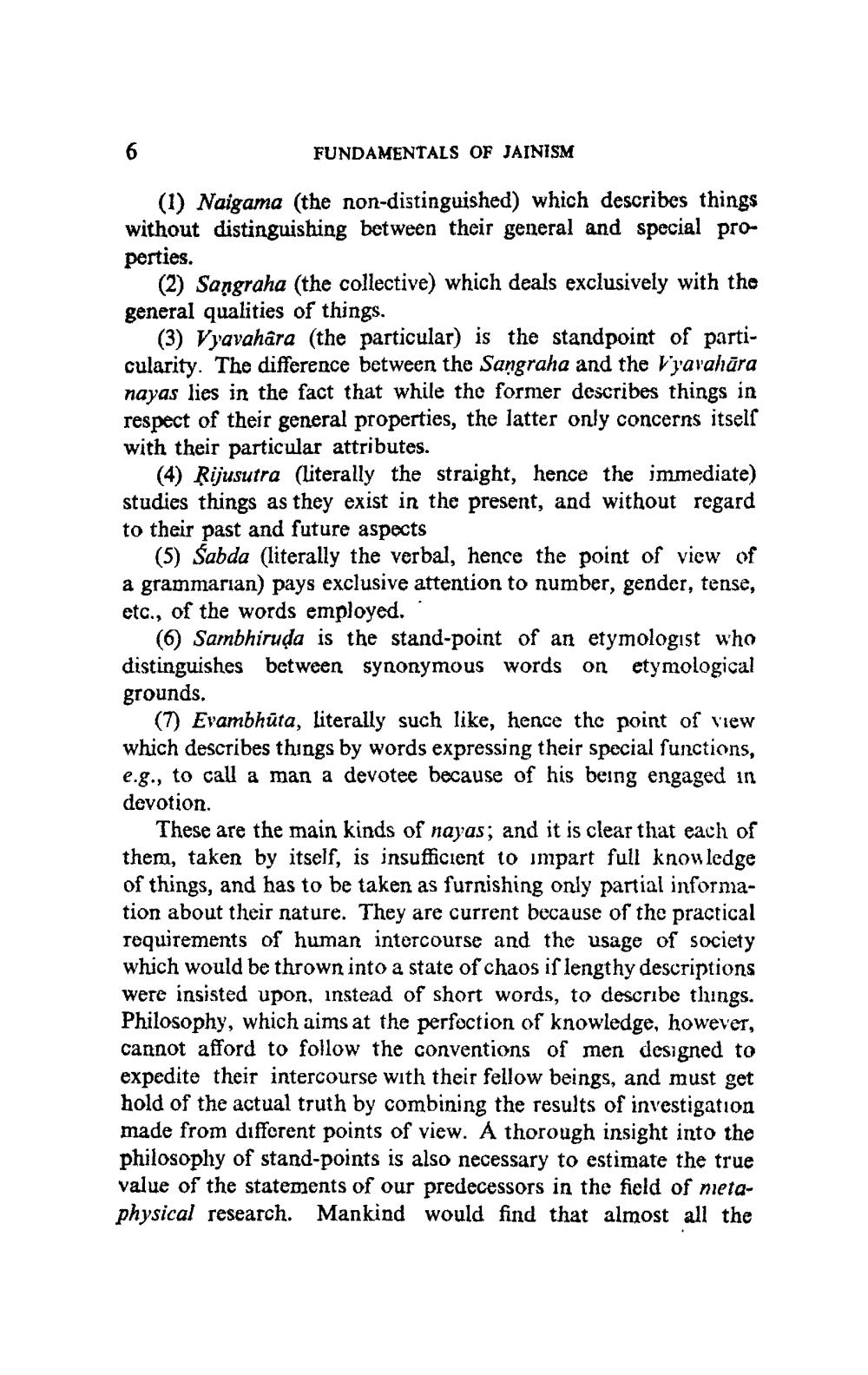________________
FUNDAMENTALS OF JAINISM
(1) Naigama (the non-distinguished) which describes things without distinguishing between their general and special properties.
(2) Sangraha (the collective) which deals exclusively with the general qualities of things.
(3) Vyavahara (the particular) is the standpoint of particularity. The difference between the Sangraha and the Vyavahāra nayas lies in the fact that while the former describes things in respect of their general properties, the latter only concerns itself with their particular attributes.
(4) Rijusutra (literally the straight, hence the immediate) studies things as they exist in the present, and without regard to their past and future aspects
(5) Sabda (literally the verbal, hence the point of view of a grammarian) pays exclusive attention to number, gender, tense, etc., of the words employed."
(6) Sambhiruda is the stand-point of an etymologist who distinguishes between synonymous words on etymological grounds.
(7) Evambhūta, literally such like, hence the point of view which describes things by words expressing their special functions, e.g., to call a man a devotee because of his being engaged in devotion.
These are the main kinds of nayas; and it is clear that each of them, taken by itself, is insufficient to impart full know ledge of things, and has to be taken as furnishing only partial information about their nature. They are current because of the practical requirements of human intercourse and the usage of society which would be thrown into a state of chaos if lengthy descriptions were insisted upon, instead of short words, to describe things. Philosophy, which aims at the perfoction of knowledge, however, cannot afford to follow the conventions of men designed to expedite their intercourse with their fellow beings, and must get hold of the actual truth by combining the results of investigation made from different points of view. A thorough insight into the philosophy of stand-points is also necessary to estimate the true value of the statements of our predecessors in the field of metaphysical research. Mankind would find that almost all the




